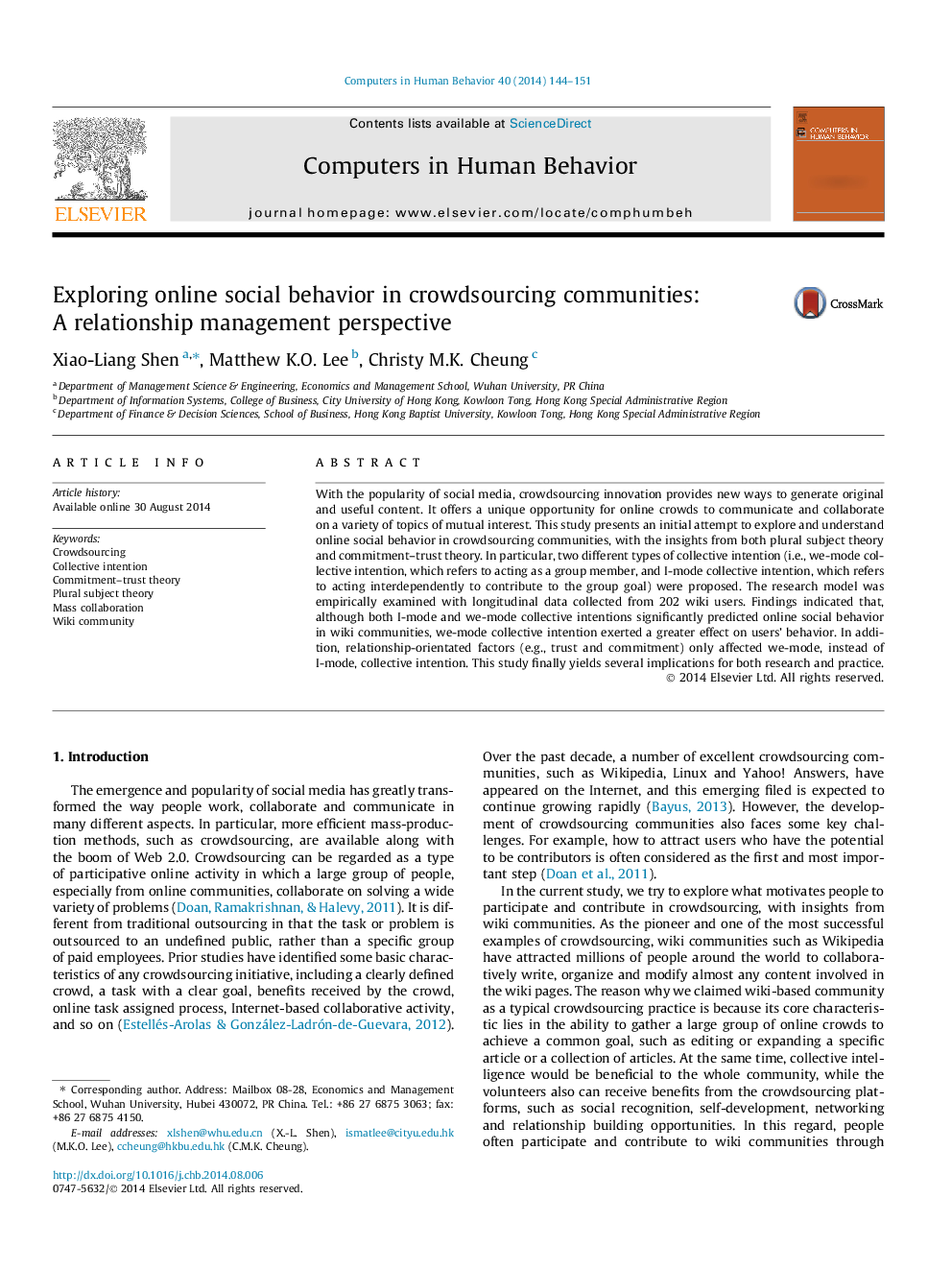| کد مقاله | کد نشریه | سال انتشار | مقاله انگلیسی | نسخه تمام متن |
|---|---|---|---|---|
| 350443 | 618445 | 2014 | 8 صفحه PDF | دانلود رایگان |
• Both I-mode and we-mode collective intentions significantly predicted online social behavior in crowdsourcing communities.
• We-mode collective intention exerted a greater effect on online social behavior, as compared to I-mode collective intention.
• Relationship-orientated factors (e.g., trust and commitment) only affected we-mode, instead of I-mode, collective intention.
• Trust is positively related to commitment towards crowdsourcing communities.
With the popularity of social media, crowdsourcing innovation provides new ways to generate original and useful content. It offers a unique opportunity for online crowds to communicate and collaborate on a variety of topics of mutual interest. This study presents an initial attempt to explore and understand online social behavior in crowdsourcing communities, with the insights from both plural subject theory and commitment–trust theory. In particular, two different types of collective intention (i.e., we-mode collective intention, which refers to acting as a group member, and I-mode collective intention, which refers to acting interdependently to contribute to the group goal) were proposed. The research model was empirically examined with longitudinal data collected from 202 wiki users. Findings indicated that, although both I-mode and we-mode collective intentions significantly predicted online social behavior in wiki communities, we-mode collective intention exerted a greater effect on users’ behavior. In addition, relationship-orientated factors (e.g., trust and commitment) only affected we-mode, instead of I-mode, collective intention. This study finally yields several implications for both research and practice.
Journal: Computers in Human Behavior - Volume 40, November 2014, Pages 144–151
